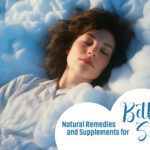 eSIMs: The Future of Travel Connectivityby admin / July 12, 2024
eSIMs: The Future of Travel Connectivityby admin / July 12, 2024How to Choose the Perfect Perfume: Essential Tips and Considerations
Choosing the perfect perfume is a deeply personal experience, often influenced by individual tastes, memories, and the emotions a scent evokes. With the myriad of options available in the market, making an informed decision can be overwhelming. This guide aims to simplify the process by highlighting essential factors to consider when purchasing a perfume, ensuring you find a fragrance that not only smells delightful but also resonates with your personality and lifestyle.
Understanding Fragrance Families
Perfumes are classified into several fragrance families, each offering distinct characteristics:
- Floral: Dominated by the scents of flowers like rose, jasmine, and lavender. These perfumes are often associated with femininity, romance, and softness.
- Citrus: Bright and fresh notes like lemon, orange, and grapefruit. Citrus scents are uplifting, energetic, and perfect for daytime wear.
- Woody: Earthy and warm notes such as sandalwood, cedar, and vetiver. Woody fragrances convey sophistication and are great for evening or colder seasons.
- Oriental: Rich and exotic, featuring spices, resins, and vanilla. These perfumes are sensual, intense, and ideal for special occasions.
Perfect Perfume Concentration Levels
The concentration of fragrance oils in a perfect perfume determines its strength and longevity:
- Eau de Parfum (EDP): Contains 15-20% fragrance oil. It has a strong scent and can last up to 8 hours, making it suitable for evening wear.
- Eau de Toilette (EDT): Contains 5-15% fragrance oil. It is lighter than EDP, lasting around 4-6 hours, ideal for everyday use.
- Eau de Cologne (EDC): Contains 2-4% fragrance oil. It is very light and fresh, lasting about 2 hours, perfect for a quick refresh.
- Perfume Oil: Has a high concentration of fragrance, often above 20%. It is applied in small amounts and offers long-lasting scent.
Testing the Scent
It’s important to test perfumes to see how they interact with your skin:
- Using Test Strips: Start by spraying the perfect perfume on paper strips to get an initial impression. This helps you quickly narrow down your options.
- On Skin Test: Apply the perfect perfume on your wrist or inner elbow. The scent may change due to your skin’s chemistry.
- Allowing Dry Down: Perfumes have top, middle, and base notes. Wait for at least 30 minutes to experience the full development of the fragrance.
Considering Skin Chemistry
Everyone’s skin chemistry is different, which can influence how a perfect perfume smells:
- pH Levels: Skin pH can alter the scent of a perfume. Some fragrances may smell sweeter or more acidic on different people.
- Oils and Dryness: Oily skin tends to hold onto fragrance longer, while dry skin might require reapplication. Moisturizing your skin before applying perfect perfume can help the scent last longer.
Seasonal Appropriateness
Choosing the right perfect perfume for the season can enhance your overall experience:
- Summer Scents: Light, fresh, and citrusy fragrances are perfect for hot weather. They are refreshing and not overwhelming.
- Winter Scents: Rich, warm, and spicy perfumes are suitable for colder months. They provide a cozy and comforting feel.
Occasion Suitability
Match your perfect perfume to the occasion for the best impact:
- Daytime vs. Evening: Use lighter, more subtle scents during the day. Reserve stronger, more intense fragrances for evening events.
- Casual vs. Formal: Opt for fresh, clean scents for casual settings. Choose sophisticated, complex perfumes for formal occasions.
Perfect Perfume Brand and Price
The brand and price can be indicators of quality and uniqueness:
- Luxury Brands: Often use high-quality ingredients and unique formulations. They tend to be more expensive but offer a distinctive and long-lasting scent.
- Affordable Options: Many affordable perfumes provide good quality and are great for daily wear without a high cost.
Packaging and Presentation
The packaging can enhance the overall experience of a perfume:
- Bottle Design: Look for a design that is aesthetically pleasing and functional. A well-designed bottle can be a joy to use and display.
- Size Options: Consider whether you need a travel-size bottle for convenience or a full-size bottle for regular use.
Ingredients and Allergens
Be mindful of the ingredients to avoid potential allergic reactions:
- Natural vs. Synthetic: Decide whether you prefer natural ingredients or are comfortable with synthetic compounds, which can offer a wider range of scents.
- Common Allergens: Check for ingredients that might cause allergies, such as certain essential oils or alcohol.
Sustainability and Ethics
Supporting ethical and sustainable brands can make your purchase more meaningful:
- Cruelty-Free: Choose products that are not tested on animals.
- Eco-Friendly: Opt for perfumes with sustainable sourcing of ingredients and environmentally friendly packaging.
Longevity and Sillage
Evaluate the performance of the perfume:
- Longevity: How long the fragrance lasts on your skin. Longer-lasting perfumes may be more suitable for all-day wear.
- Sillage: The trail left by the perfume, indicating its projection. High sillage perfumes are more noticeable to others, while low sillage perfumes stay closer to the skin.
Personal Preference Perfect Perfume
Your perfect perfume should reflect your individual style and personality:
- Signature Scent: Find a unique scent that becomes your personal trademark.
- Fragrance Wardrobe: Curate a collection of scents for different moods and occasions, just like a wardrobe for your clothes.
Reviews and Recommendations
Leverage the experience of others to make an informed choice:
- User Reviews: Read reviews from other buyers to gain insights into the performance and quality of the perfume.
- Expert Opinions: Seek recommendations from fragrance experts or bloggers who can provide professional advice.
Storing Perfume
Proper storage ensures your perfect perfume remains fresh and effective:
- Proper Storage: Store perfume in a cool, dark place away from direct sunlight and heat to maintain its integrity.
- Expiration Date: Be aware of the shelf life of the fragrance. Most perfumes last about 3-5 years, but this can vary.
Conclusion
Selecting the right perfect perfume is a journey that involves understanding fragrance families, testing scents, and considering personal and seasonal preferences. By keeping these factors in mind, you can find a fragrance that not only smells wonderful but also aligns with your personality and lifestyle. Happy scent hunting!



